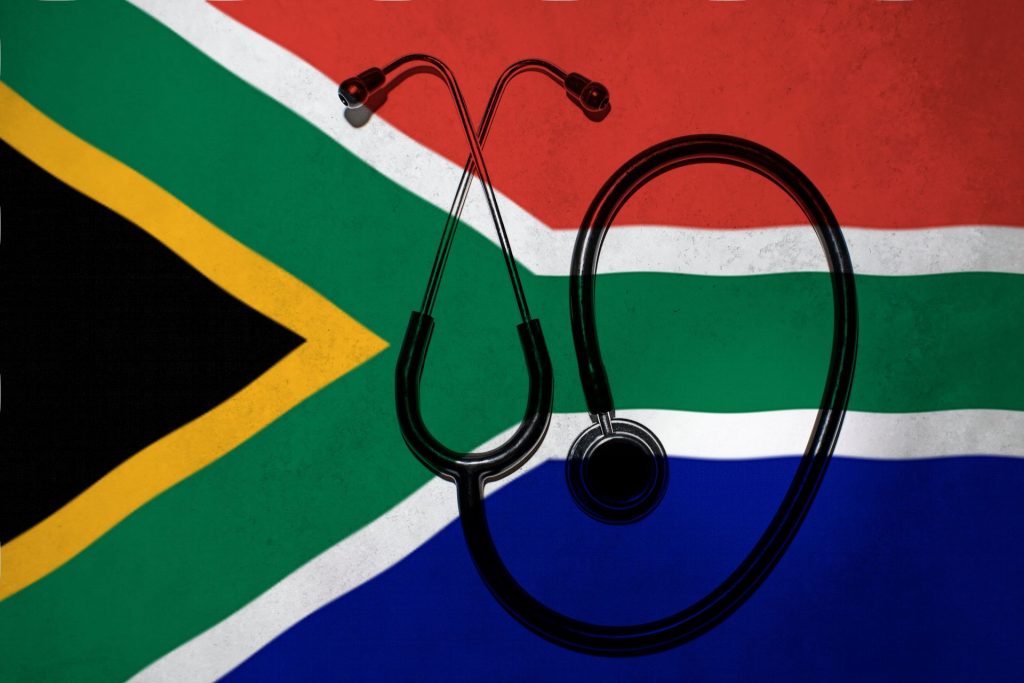
By Fatima Hassan and Leena Menghaney
A Competition Commission probe recently resulted in a patent on an important tuberculosis medicine being dropped in South Africa. Twenty years ago, a similar Competition Commission case resulted in a settlement that helped drive down the prices of several antiretrovirals, thereby helping to set the stage for the country’s HIV treatment programme. Fatima Hassan and Leena Menghaney connect the dots between the two landmark cases and map out what has and has not changed over the last two decades.
In the late 1990s and early 2000s, South Africa faced a major uncontrolled AIDS epidemic, worsened by state sponsored AIDS denialism. South Africa was at the epicentre of a global epidemic, with hundreds of thousands of people getting sick and dying, needlessly, because lifesaving antiretroviral medicines were out of reach.
This was in the main because of the Mbeki government’s deadly science denialism denying public sector patients antiretrovirals and the high cost of some of these medicines, which at the turn of the century was available in the private sector but only for the very rich or medically insured. The private sector price for the combination of three antiretrovirals needed by most people living with HIV was exorbitant.
This was because of patent monopolies held at the time by multinational pharmaceutical companies, particularly GlaxoSmithKline (GSK) and Boehringer Ingelheim (BI). In essence, people in South Africa living with HIV had to beg to live – by seeking donations and charity or pressuring their respective medical schemes to provide coverage. Meanwhile, lifesaving antiretrovirals were generally available in the Global North and in some parts of the Global South where governments like those in Thailand and Brazil had taken action to reduce prices.
Hundreds of thousands of people in South Africa died prematurely because they did not get access to these medicines in time.
The landmark Hazel Tau case
Looking for a way to challenge the high prices of key antiretrovirals, activists turned to South Africa’s newly revamped post-apartheid competition law. In September 2002, the Treatment Action Campaign, Hazel Tau, a woman living with HIV and several others lodged a complaint with the country’s Competition Commission. They alleged that the price that GSK and BI were charging for important antiretrovirals was excessive and anti-competitive, undermining not just Competition Law but also the right to health as enshrined in the country’s still fairly new Constitution.
The Competition Commission agreed to investigate. Several months later, they announced that there was a prima facie case of excessive pricing and that they would be referring the matter to the Competition Tribunal (the next phase of a complaint to the Competition authorities). Almost immediately after that announcement, TAC was approached by GSK and BI to “settle” the matter. This meant there would be no public hearings, and the companies would not have to defend their pricing decisions in the dock.
The terms of the settlement, negotiated by the TAC’s legal team, mirrored what TAC had publicly demanded at the beginning of the case. Most importantly, GSK and BI agreed to grant voluntary licenses to several generic manufacturers that would allow them to make and sell the antiretrovirals in question. It was this generic competition that would drive down the prices of antiretrovirals in the years that followed.
Even though the Competition Commission only has jurisdiction in South Africa, the licenses included many other African countries, which meant those countries could also benefit from the generic competition and lower prices. The settlement (including the terms of the voluntary licenses) was agreed to by the Competition Commission, made an order and publicly announced, leading to the conclusion of the complaint.
The case, which came to be known as the Hazel Tau case, would in the years to come be recognised as one of the foundations that made large HIV treatment programmes possible in South Africa and other African countries. Despite this victory, the ongoing effects of AIDS denialism meant that it would in reality be several years before the more affordable generic antiretrovirals would be made widely available in South Africa.
20 years later, the spotlight is on TB drugs
HIV has not been the only health crisis to affect SA. According to the World Health Organization (WHO), Tuberculosis (TB) is one of the leading infectious causes of death globally, and drug-resistant TB (DR-TB) remains a public health crisis. The WHO estimates that around 304 000 people fall ill with TB in South Africa per year, and it claims over 50 000 lives, which means it remains one of the country’s top killers. While TB rates are slowly declining, there is concern that rates of drug-resistant forms of TB (DR-TB) are increasing. DR-TB requires newer, more expensive treatments.
Republished from Spotlight under a Creative Commons licence.

